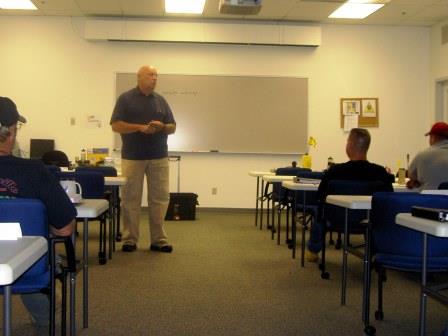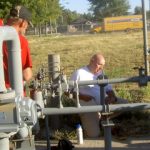Operator Qualification Program Provision 2: evaluating the individual
In my earlier post, Operator Qualification Program Provision 1: identify covered tasks, I discussed how regulations require pipeline operators to prepare a written Operator Qualification Plan. The first step in the plan is to determine the covered tasks and create an OQ task list, and the second step is to evaluate the individuals while performing the duties to ensure they are adequately trained.
Evaluating the employee or contractor means to test them and maintain documented evidence to support that the individual was tested and passed in a manner which reflects that he or she has performed the task and recognized and reacted appropriately to normal and abnormal operating conditions (AOC). The person can be evaluated through written or oral examinations, observations while performing the task, or in a classroom or simulated situation, but it must be documented that the person has the knowledge, skill, and ability (KSA) to perform each covered task.
The Operator Qualification (OQ) plan must cite specific acceptable performance standards that need to be met for each task. The rules may include third-party evaluations, like contractors, vendors, associations or government agencies.
The operator will be expected to demonstrate through written documentation, that the employee or contractor(s) met the KSA for each task. Should there be any critical requirements for a function, like a physical ability to perform such a job, it must be demonstrated that the individual is capable through documentation.
The testing in the OQ program must include questions or hands-on demonstrations for abnormal operating conditions. Examples of abnormal working conditions, in which the operator may be expected to react to, are:
- Fire

Among the recommended course topics in Linc Energy Systems OQ courses are Abnormal Operating Conditions. - Odor report
- Leaking gas or product
- Component failure
- Operation of a safety device
- Unintended valve closure
- Overpressure
- Under-odorized gas
- Corroded pipe
- Low pipe-to-soil potentials
Some abnormal operating conditions can impact the performance of any task, such as gas odor. While other unusual operating conditions only affect specific covered tasks. In either case, operators must determine the relevant AOCs and cite how they expect their employees or contractors to respond successfully.
If an operator chooses to accept evaluations of others, like an Operator Qualification Training vendor, or contractors, associations, etc., the operator must make sure the assessments address the KSAs to perform the covered task and respond to abnormal operating conditions appropriately.
Evaluating the employee or contractor to ensure that they demonstrate the knowledge, skills, and abilities to perform the covered tasks is the responsibility of the operator. Even if the operator hires OQ training company, they must ensure the testing is conducted with expectations cited in a written OQ plan, and the evaluations and tests must be documented and made available for a safety inspection.
In my next OQ posting I will discuss step #3 in the OQ Plan: Allow individuals who are not qualified to perform a covered task if directed and observed by an individual who is qualified.
Linc Energy Systems offers an adequate balance between hands-on and classroom instruction.


